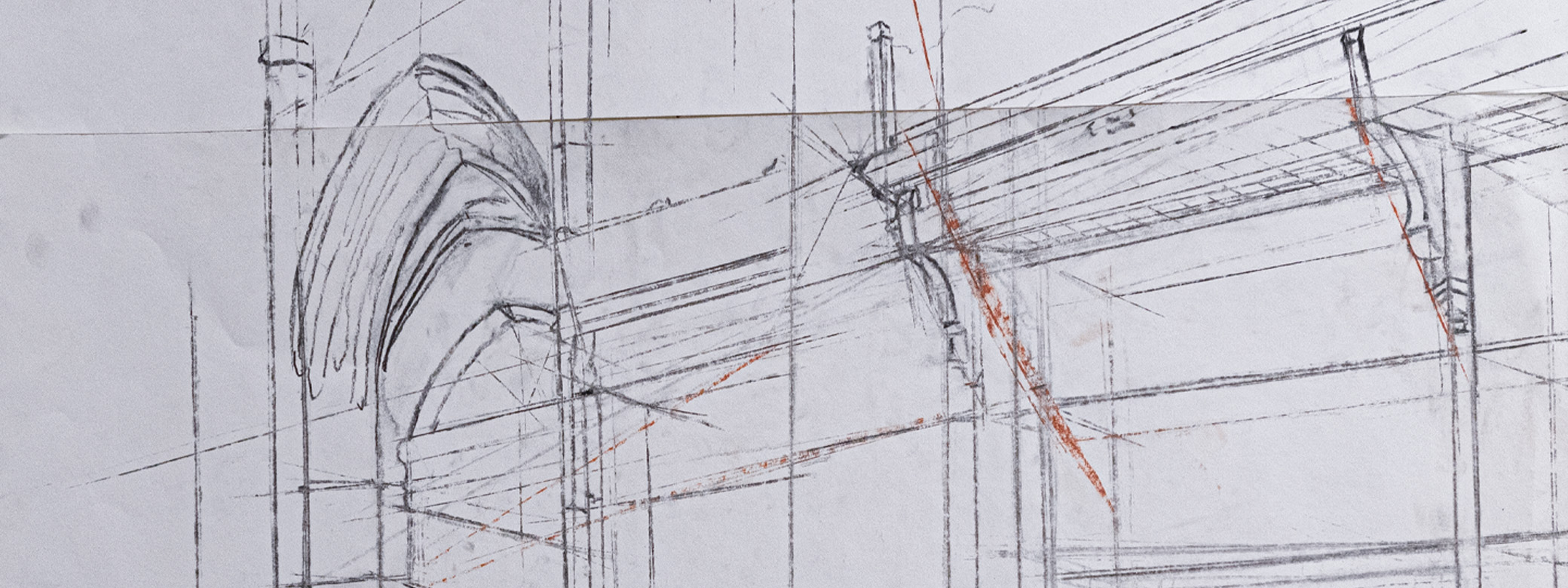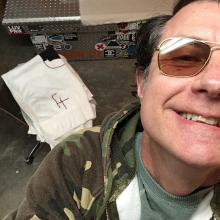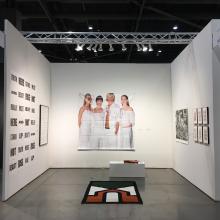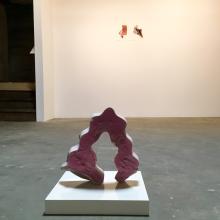Background
Yoder received his MFA in Fiber Arts in 1987. Since then, he has worked on his own art practice, and he became a gallerist when he founded SEASON in 2010. Tela Real, an Instagram-only gallery, is his most recent venture.
Interview
What made you choose the School of Art for your graduate studies?
It wasn't complicated. I moved out here with three friends. Seattle was familiar to them and, having just finished undergrad, we took a chance and applied then started driving out. I didn’t know if I was accepted until after I had moved here.
Do you have any notable memories from your time as an MFA student?
None that I can remember offhand. I bartended to help pay for my second year and that was great fun. It allowed me the week to devote to school. What is amazing now when I go back on campus is how much things have changed. Entire departments are in different buildings and yet so much still seems the same.
Is there anything you learned while at UW that you continue to apply in your own art or in your work as a gallerist?
Just prior to coming here, I had spent two years involved in drum corps, which taught me the value of hard work and the importance of dedication. While at UW those skills were certainly put to the test with individual and group critiques, papers, and research. UW taught me to prioritize, to pay attention to what mattered to me, and to have the confidence to defend my actions.
What was your focus from the time of your MFA graduation to the opening of SEASON in 2010?
I was fortunate to be an artist in Seattle during a period of growth and prosperity. For about a ten year period, I supported myself on the sales from artwork, as did many other artists in town. I had shows here and in many cities and was able to travel to most of the openings to meet collectors. It was a great period and the art scene in Seattle really grew.
Tell us why you created SEASON and then, more recently, Tela Real.
The economic crash of 2008 was what really created SEASON. I had been involved with many of the grad students for several years prior to 2008 and had been trying to figure how to promote their work to a bigger audience. By 2010, I felt we were at a low point and the idea of opening a gallery seemed safe as we were at rock bottom and there was no where to go but up.
Tela Real happened because I saw an opportunity that would hurt no one and possibly help many. There are plenty of artists who deserve shows, but there are only so many shows available. By starting Tela Real, I created a way to show artists who just needed an opportunity to really shine. It has been great reaching out to strangers, telling them what’s going on, and seeing how excited they are when they see the exhibition documentation. If you are not familiar with Tela Real, it is an instagram-only gallery (@tela.real). No visitors, no hour, no website. The documentation is what really exists, and now with various degrees of lockdown, it has proven to be a perfect exhibition space.
Has your work as a gallerist changed your work as an artist?
Well, it has certainly taught me things to do and to not do when corresponding with others. Also, when I’m in the studio, I am more focused and aware that others are just as simultaneously confident and anxious when they work. Putting yourself out there day after day can be exhausting. It’s okay to step back, enjoy what others are doing, and support them a bit, then return to the studio with a renewed sense of purpose.
Do you have any advice for current students — undergraduate or graduate — about the value of an arts degree and/or any specific skills you recommend learning?
Being generous is one of the most important skills you can have. It takes so little time but the rewards are immeasurable. If you can do a studio visit or help a friend with their statement or whatever, it will pay you back in no time. While in school, remember the teachers are a great resource, and you should get as much out of them as you can. Likewise, they should expect as much out of you. This is a great time to make mistakes, wholeheartedly and without any embarrassment. Learning what not to do is just as important as learning what to do. Also, if you think you may want to have representation at a gallery after you graduate, ask your teachers how that works. If they don’t know, keep asking. Different places want different things, but there are many basics that will help take the mystery out of it. And, most importantly, have fun and enjoy what you are doing.



